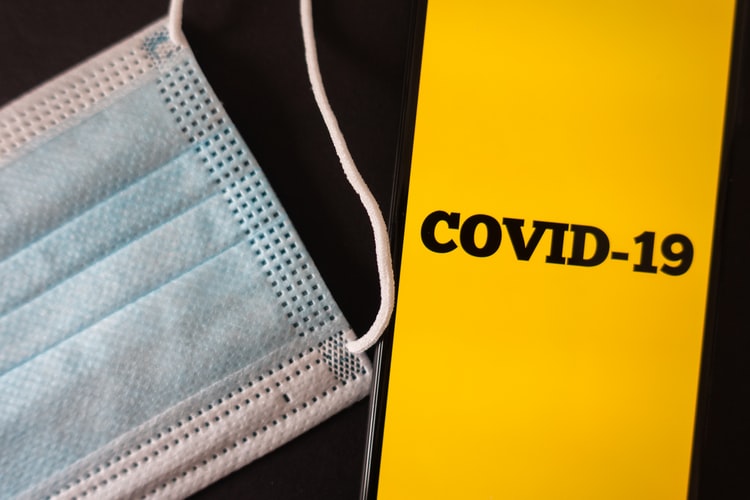The TIC Salut Social and I2Cat Foundations collaborate on various technological projects in the health field
28 of October of 2020
The i2CAT Foundation is a non-profit technology research centre that promotes R&D&I activities based on advanced digital technologies and their architecture, applications and services. The TIC Salut Social Foundation, meanwhile, is the body of the Ministry of Health that works to promote the use of ICT in the field of public health. It analyses trends by monitoring new initiatives focused on innovation. Since their inception, both entities have been collaborating with companies, public administrations, academic institutions and users in order to apply this knowledge in solving social and business challenges.
Here are some of the collaborations in which we have participated together:
1. Report on the international analysis of contact tracing apps in the context of the COVID-19 pandemic
Commissioned by the Ministry of Health, the project analysed the applications developed by different international governments whose main objective is to trace contacts (Contact Tracing Mobile Applications) of COVID- 19 via mobile phone and notify users if they have been in contact with people exposed to the disease.
The aim of these applications is to identify new risks of contagion that enable the application of appropriate measures to interrupt the spread of the disease and thus deal with the current situation. The purpose of the project was to present a series of recommendations and aspects to consider when developing an application of this nature
that will allow us to deal with the COVID-19 pandemic that has erupted in recent months. Report
2. Applicability of Blockchain technology to the Catalan Health System
The aim of this project is to evaluate the functionality and viability of blockchain technology applied to the field of health. The specific study is focused on a pilot test of a specific case of information exchange processes between actors involved in transplants –dialysis operators, public health nephrology centres and the coordinating transplant body–. Nevertheless, it does also focus on the scalability of all information management processes.
In this regard, the OCATT is the organization responsible for planning, ordering and coordinating activities related to the extraction, conservation, distribution, transplantation and exchange of organs and tissues for therapeutic purposes in Catalonia. Its main objective is to increase the number of transplants to respond to the increase in demand, always guaranteeing the quality of the process and the final result. The OCATT plans to incorporate an initial blockchain technology initiative that will serve as an pilot test in the Catalan Health System to exchange data from transplant patients in a secure and digitalized manner.
I2Cat and TIC Salut Social have participated in the definition, construction and execution of a proof of concept to use blockchain and obtain clinical data from transplant patients from dialysis centres in an efficient and safe way to then be collected by OCATT.
3. Ultra Wide Band technology
Project jointly promoted by the TIC Salut Social Foundation and Fira de Barcelona to develop a prototype wireless locating system for attendees at trade fairs and conferences organized by Fira de Barcelona. This will also make it possible to check that people ate maintaining the safety distances established as a result of the pandemic and to locate contacts of people who have tested positive for Covid-19.
Ultra Wide Band technology is capable of providing precise locations in outdoor and indoor spaces at distances of less than 10 centimetres. Unlike Bluetooth technology, which estimates distance based on signal strength, UWB calculates the time it takes for the signal to return to the transmitting antenna after it has been emitted. This allows for a higher level of accuracy. This difference may not be noticeable in some cases but in others such as pairing nearby devices it can offer a significant security advantage. Video
4. App.Salus
The Salus initiative will allow citizens to collaborate with specialized research institutes by sharing their health data in order to improve disease research. The solution leverages
the features of blockchain architecture, such as security, transparency, data immutability, auditing and distributed computing. The application will connect research institutes with user data, ensuring that the intermediary is not aware of the shared content, fully respecting privacy and access control at all times.
The Ministry of Digital Policies, in conjunction with the Ministry of Health and the TIC Salut Social Foundation agreed to commission I2CAT with a proof of concept based on the needs of Salus (2019) and subsequently the development of the App.Salus Platform (2020). The Mobile World Capital Foundation and Salus have also been involved in the development of the app by providing financing together with the Ministry of Digital Policies and the Ministry of Health. I2CAT is the provider. Website
5. Virtual Reality in health
Virtual reality (VR) is the term used to describe a computer-generated three-dimensional environment that can be explored and executed by a person. This interaction with a three-dimensional environment may be through voice instructions or through peripherals such as controls or gloves, with or without motion detection. The Virtual Reality in Health Report prepared by the TIC Salut Social Foundation provides an overview on the current state of virtual reality in health. It covers the historical evolution of this technology, the different definitions and applications, as well as the most used devices. It also compares the different international initiatives and defines guidelines for promoting virtual reality projects in health centres. The I2Cat Foundation has collaborated on this report applying its expert knowledge to edit some of the content on Virtual Reality, Augmented Reality and Mixed Reality applications. Report


